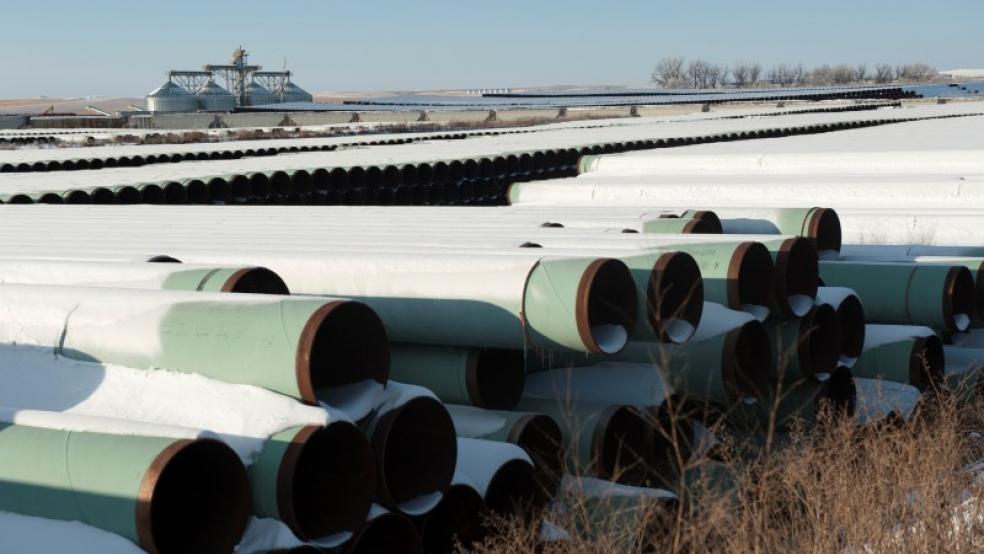As promised, Senate Majority Leader Mitch McConnell (R-KY) on Thursday pushed through legislation to circumvent President Obama and authorize construction of the controversial Keystone XL pipeline, by a convincing vote of 62 to 36.
McConnell actually did it with the help of a handful of Democrats with an interest in having the pipeline pass through or near their states or boost the economy.
Related: Obama Wants Long-Term Infrastructure Plan, Not Keystone
Nine Democrats voted with 54 Republicans to approve a measure staunchly opposed by the White House that would clear the way for the construction project, one proponents say will generate thousands of jobs and increase energy independence.
Those Democrats are Michael Bennet of Colorado, Robert Casey, Jr. of Pennsylvania, Thomas Carper of Delaware, Joe Donnelly of Indiana, Heidi Heitkamp of North Dakota, Joe Manchin of West Virginia, Claire McCaskill of Missouri, Jon Tester of Montana and Mark Warner of Virginia.
Heitkamp has been a strong advocate of Keystone, which would pass through her state on its way to Gulf Coast refineries and ports. As a key Democratic leader in the effort to advance U.S. energy infrastructure, Heitkamp built a coalition of pipeline supporters, successfully recruiting 10 other Democratic senators last June to join her in calling on President Obama to make a final decision.
Related: Defying Veto Threat, Senate Passes Keystone Bill
“For years I have said we need to approve the construction of the Keystone XL pipeline so that we can build our energy infrastructure, increase our energy independence, and move our country closer to a true all of-the-above energy strategy,” she said earlier this week.
Tester’s state also stands to benefit. “The Keystone pipeline will make our nation more energy secure and it will create jobs in Montana,” he said after the vote. “I urge President Obama to sign the bill into law. But Keystone is not the only solution for our energy future. We must step up our work to make cleaner energy alternatives a larger part of our nation’s energy strategy.”
While the legislation was approved after nearly three weeks of debate, McConnell and the Republicans are several votes short of the 67 votes needed to override the president’s promised veto. The House likely would have an even tougher time getting a two-thirds majority.
The proposed pipeline application has languished for years while the State Department and other federal and state authorities did feasibility and environmental impact studies.
Related: Plunging Oil Prices Could Ruin Economics of Keystone Pipeline
Obama has said he wants to wait until a series of reviews by additional cabinet agencies are complete, although he’s repeatedly signaled strong reservations about the $8 billion pipeline project. Proponents and opponents alike agree that the time has come for a final decision, which some say could come from the White House as early as February.
Top Reads from The Fiscal Times:
- The 10 Worst Places for Obamacare in 2015
- Mitt: I Would Win, But I’m Not Running
- How Obamacare Will Impact Your 2014 Taxes





